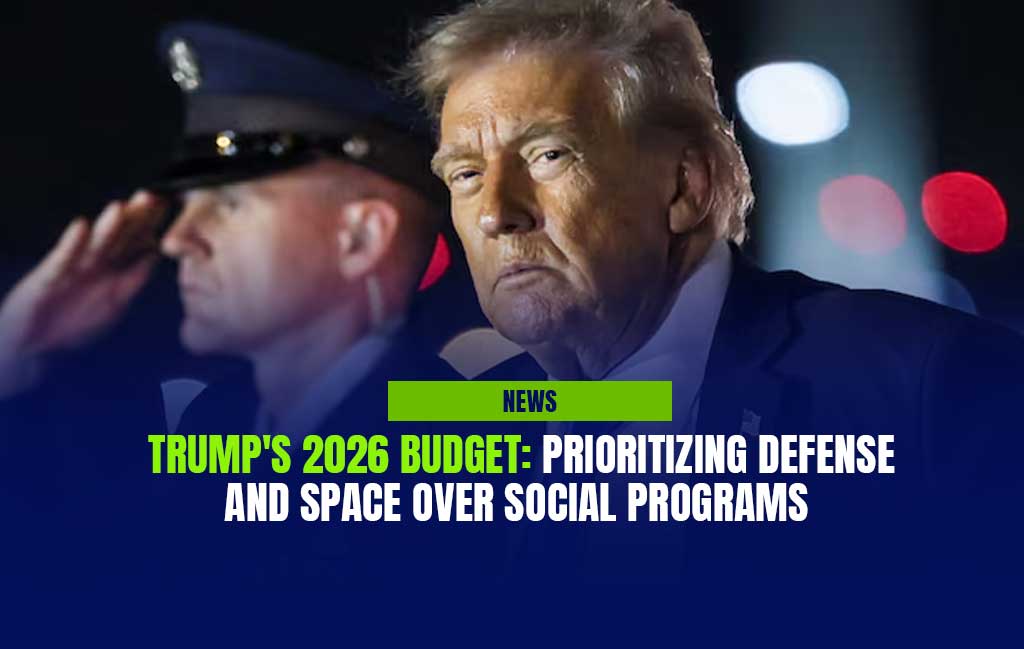President Donald Trump has unveiled a sweeping federal budget proposal for 2026, aiming to reduce non-defense discretionary spending by $163 billion—a 23% cut—while significantly increasing funding for defense and space initiatives.
Major Reductions in Social Programs
The proposed budget targets substantial cuts across various social programs:
Healthcare: A proposed reduction of over $1.85 trillion over ten years to the Affordable Care Act (ACA) and Medicaid, potentially leaving millions without access to healthcare. CNN+4Center on Budget and Policy Priorities+4EconoTimes+4
Nutrition Assistance: Cuts exceeding $190 billion to the Supplemental Nutrition Assistance Program (SNAP), including shifting over $100 billion in costs to states. Center on Budget and Policy Priorities
Education: A $10 billion reduction in federal student aid programs, which could exacerbate the student debt crisis and hinder access to higher education for low-income students. EconoTimes
Environmental Programs: Significant cuts to environmental and climate-related programs, including over $2.4 billion from Clean and Drinking Water State Revolving Loan Funds and $1.2 billion from National Park Service operations. AP News
Increased Funding for Defense and Space
While domestic programs face cuts, the budget proposes:Dallas Weekly+5Reuters+5Reuters+5
Defense: A 13% increase in defense spending, totaling $1.01 trillion, aimed at enhancing military readiness and cybersecurity. The Daily Beast+1Reuters+1
Space Exploration: An allocation of $1 billion for Mars exploration efforts, despite a 25% budget cut to NASA, focusing on manned missions to the Moon and Mars. The Daily Beast
Political Reactions
The budget proposal has elicited strong reactions:The Daily Beast+3Financial Times+3Dallas Weekly+3
Support: OMB Director Russ Vought supports the cuts as a strategy to limit federal bureaucracy and prioritize national security. Reuters+1Financial Times+1
Opposition: Democrats and some Republicans, including Senator Susan Collins, have expressed concerns over reductions in programs aiding low-income Americans and potential inadequacies in defense spending keeping pace with inflation. Reuters+1Center on Budget and Policy Priorities+1
While the budget reflects the administration’s priorities, it is subject to Congressional approval, where it is expected to face significant debate and potential alterations.

